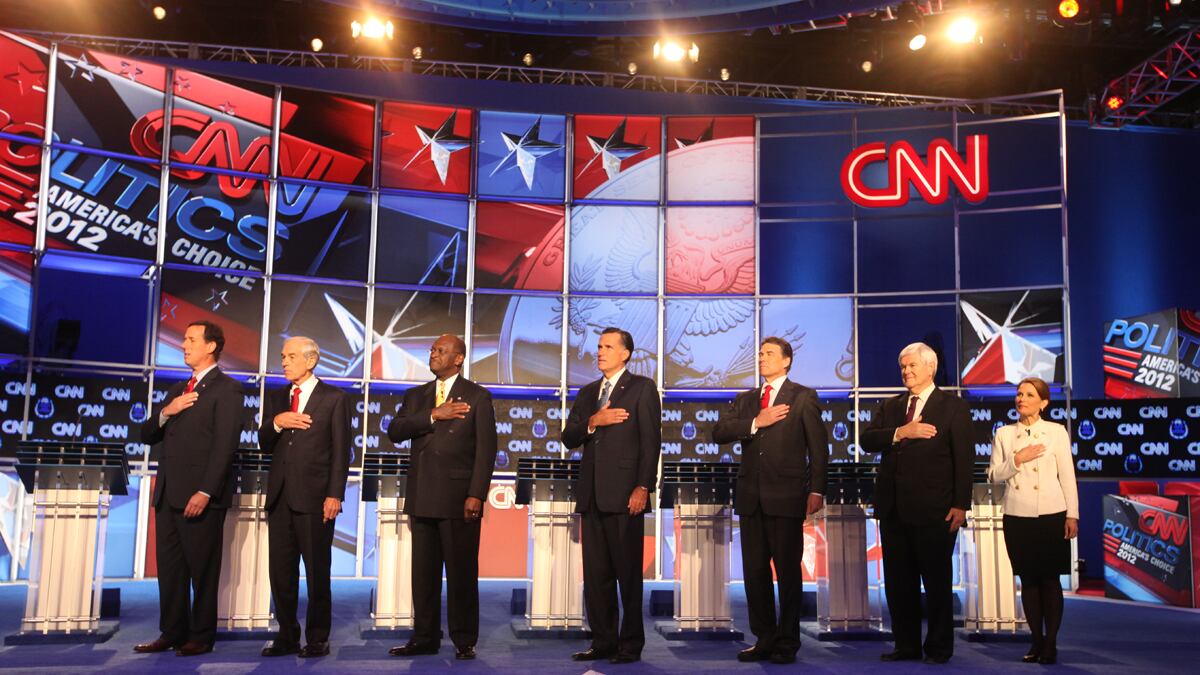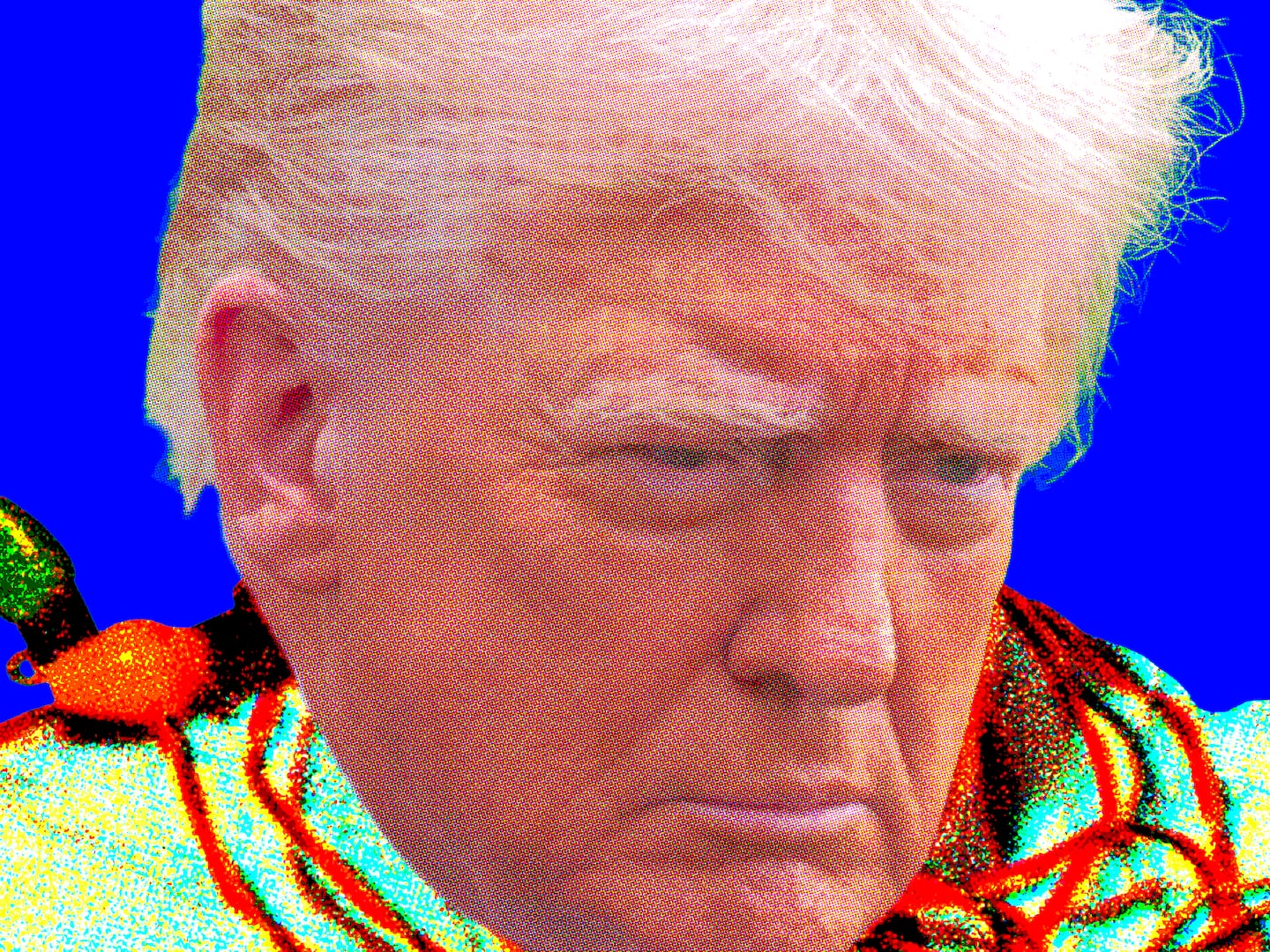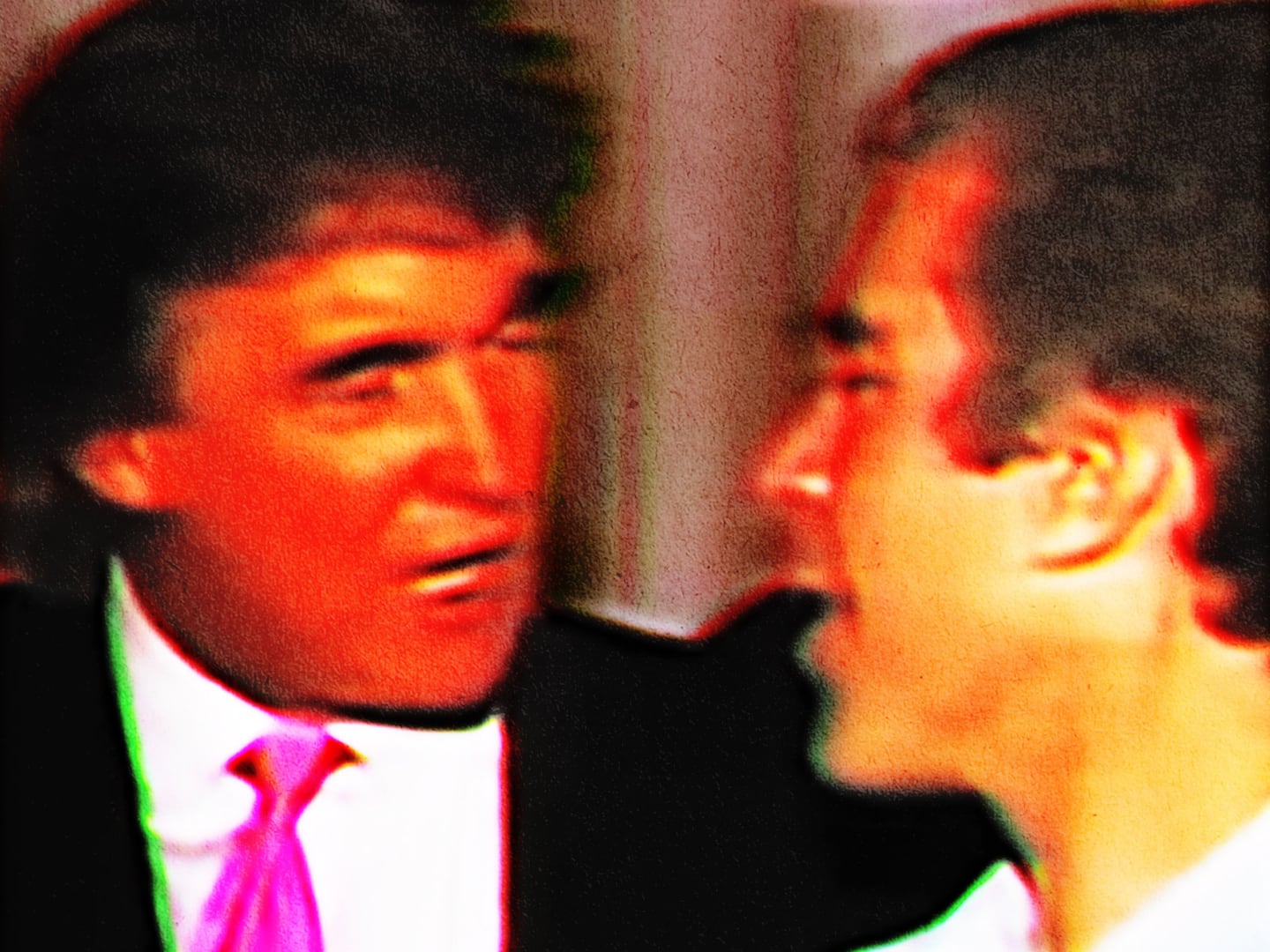Sin City brought out the devil in the GOP candidates tonight, delivering the most pugilistic Republican Party debate to date. There were policy punches and personal attacks, with no love lost between Mitt Romney and Rick Perry. With the debate just minutes over, here’s my play-by-play take on each candidate tonight.
Mitt Romney: This was the first night where Mitt Romney got rattled, getting into several verbal tussles with the surrounding candidates, accusing them of interrupting while he was trying to speak. I got the sense that he was playing tapes of Reagan saying, “I paid for this microphone” in his head, but the results onstage came off more peevish than in command. Nonetheless, Mitt remains the most reasonable man on the stage, taking several opportunities to raise the debate with thoughtful paeans to the importance of legal immigration and the role of faith in our nation. The fact that most of the candidates’ fire remained focused on Mitt was the true sign that, polls aside, he remains the real frontrunner.
Herman Cain: Give the Herminator his due—his 9-9-9 plan not only helped elevate him in the polls, it has helped move the entire primary in a more policy-driven direction. It’s no accident that Ron Paul released his trillion-dollar-cut plan this week, while other candidates are promising bold plans of their own. Of course, the fact that Cain put his chin out by offering a plan ensured that it was torn apart by the rest of the pack at the outset of the debate. And Cain’s repeated resorting to “apples and oranges” metaphors became a drinking game by the end of the debate. Nonetheless, he remains the most likable person—and the best orator—in the field. He is showing some staying power—and will have to be taken seriously, if only as a VP nominee.
Rick Perry: The Texas governor wins the "most improved" award tonight. He came ready to tussle, taking shots at Mitt Romney from the outset, with sound bites primed and job-creating frames at the ready. He had an oppo team ready with ’08 data on Mitt’s landscaper hiring illegals and other lines of attack. And he had his swagger back. Still the best retail politician in the pack, he was not the worst debater—at least not last night. Which is why his occasional crowd-pleasing panders—from talk about defunding the U.N. to running away from Yucca Mountain after giving a thin but supposedly signature speech on energy independence. One area where he’s earned the right to be respected by everyone else onstage—border security.

Rick Santorum: There’s a temptation to ask why Rick Santorum is still in this race—and then you realize that he keeps landing punches laced with real policy. His plan to eliminate corporate income taxes for manufacturing business deserves at least some discussion, and his early-round attacks on Mitt Romney’s health-care plan were devastatingly effective, helping to set the tone of the night. While he overstates his success as a swing-state politician, neatly forgetting to mention that he got decimated in 2006, he knows how to speak to Main Street, middle-class, and blue-collar workers more convincingly than anyone on stage. And while his pivot to how the GOP can appeal to Latinos included an oblique reference to gay marriage, reminding why this social-conservative culture warrior has little crossover appeal, he is still in there fighting and probably due for his 15 minutes of fame. Of all the second-tier candidates on the stage, he’s definitely not running for VP.
Newt Gingrich: I caught a glimpse of Newt and Callista walking into the Venetian this afternoon, and even with Newt absent-mindedly typing away on his BlackBerry, they didn’t seem out of place. I immediately thought ‘Tiffany’—which doesn’t help with the candidate’s relate-ability in the wake of this manic recession. But there is no question that Newt remains the smartest guy on the stage, the biggest policy wonk by far. He has stayed in this race based on sheer endurance—a combination of brains, credit cards, and personal pride. This is his bucket-list campaign. But he has the chops as the referee, willing to wade into debates and settle arguments for or against. Even with all his low blows, he is what qualifies as a wise man in this current field and we can only hope that the nominee takes more than a page from his policy—if not his political—playbook.
Ron Paul: This should be Ron Paul’s moment. He is the most intellectually influential person in the current Republican Party, helping to account for the initial impulses behind the Tea Party movement. His “End the Fed” mantra has now been taken up by members of the Occupy Wall Street crowd. He can raise money online like nobody else, and his supporters are by far the most intense. His powers are such that he can get significant portions of this conservative audience to applaud Afghanistan withdrawal, and even prison reform. But Paul seems increasingly small on the stage, swimming in his own suit, unable to command sustained attention even as the other candidates echo aspects of his quixotic mantra. And when Ron Paul calls your economic plan “dangerous” and “regressive”—as he did the 9-9-9 plan—you know things are getting strange.
Michele Bachmann: The congresswoman keeps getting weirder in terms of her debate performances, now placing all her chips on her appeal as a mother, offering closing metaphors like “the cake is baked” and an effective personalization of foreclosure that managed to strum heartstrings without ever coming close to actually answering with any specifics. She still has ambition, if not vision. But the shedding of senior staff is starting to show in ways big and small. She raised her hand when she wanted to interject, looking like a kid wanting to be called on in class.






